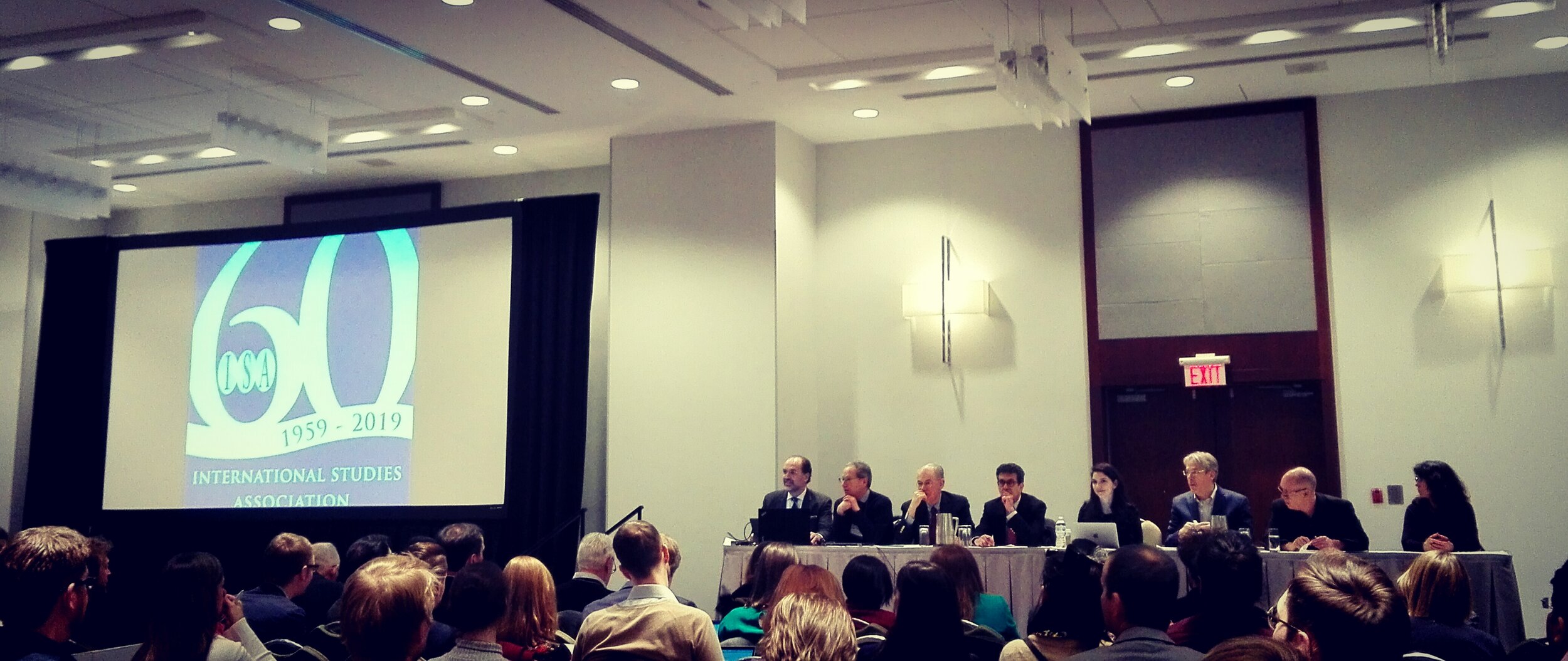ISA 2019 – What role for Europe and EU scholars in international studies?
Submitted by Maastricht University on Tue, 04/16/2019 - 18:33
A blog post by Sharon Lecocq, researcher at Leuven Centre for Global Governance Studies (LCGGS) and Leuven International and European Studies (LINES) institute at University of Leuven.
The International Studies Association celebrated its 60th anniversary at this year’s convention with the motivating slogan Re-visioning International Studies: Innovation and Progress. Accordingly, exciting new topics came to the fore such as cyber, religion, informality and the importance of a wide array of non-state actors in world politics, while global and interdisciplinary approaches to international relations gained momentum. At the same time, however, an underlying feeling of anxiety prevailed in debates, as traditional International Relations (IR) concepts become increasingly framed in terms of crisis, contestation and an overall need for change.
One of the first panels I attended (coined ‘the rock star panel’ by a colleague), entitled The International Liberal Order in Crisis, nicely illustrates this anxiety. John Ikenberry moderated widely divergent opinions about whether or not the International Liberal Order will survive, what it actually means and consists of, and whether or not it is even a useful concept to start with. Most panellists agreed that at least some change would be needed to continue thinking in terms of such an order, including a reduced emphasis on crusading for democracy and capitalism in pursuit of “Western” values and institutions, and a need for accommodating “non-Western” views and interests. [i]
An interesting observation during that same panel was that discussions on the future of the International Liberal Order mentioned the importance of “rising powers” and the global South as a whole, whereas the EU and Europe did not figure in the conversation. Over the next days, it started dawning on me that this absence in overarching debates seemed to be related to a general lack of interest in EU-related panels. We asked around, and indeed, the feeling was shared among other EU scholars attending the conference that turnout in their sessions appeared unusually low. We contemplated several potential causes, such as other interesting competing agenda items (plausible, with over 80 panels and roundtables happening simultaneously) or the fact that IR may still mostly be an “American discipline”[ii]. The latter, however, did not seem to be the case at #ISA2019.
If the plea for a global and decentred approach to IR had been growing, it was indeed omnipresent at this year’s ISA, with fully-packed conference rooms for Amitav Acharya and Barry Buzan presenting their Making of Global International Relations [iii], and for the various roundtables on globalizing the discipline with i.a. Louise Fawcett, Andrew Hurrell, Peter Katzenstein, Meera Sabaratnam, Ole Waever, etc. These all pointed to the importance of local and regional interpretations of global politics and to the limitations of our current “Western” vocabulary to truly engage with different conceptions of international relations. As it turned out, our NORTIA-panel on The Decentring Agenda: Europe in a Non-European World (with Kalypso Nicolaïdis, Nora Fisher Onar, Bahar Rumelili, Cengiz Gunay, and great discussant, Tobias Lenz) constituted a timely addition to this programme.
In conclusion, and in view of ISA usually providing a fair idea of what goes on in current debates in IR, this year’s conference left a double impression. On the one hand, it is always exciting to see how new developments continue to keep IR alive, urging it to innovate and re-vision itself to cope with new realities. One the other hand, there is a growing feeling of unease about increasingly complex realities outpacing a scholarship striving for parsimony. In particular, the unexpectedness of some developments, reactions and turns of events gave rise to serious soul-searching within the discipline: How to understand what is happening now and where we are moving towards? Are the theories and methods we are used to working with still adequate for this? And… what role is there for Europe, the EU and EU foreign policy scholarship within these debates? Looking forward to discuss exactly these questions throughout topical upcoming NORTIA activities.
I am very grateful to NORTIA, for giving me the opportunity to experience and contribute to these discipline-defining debates first-hand at ISA 2019 in Toronto, Canada.
[i] Some of the pieces presented in this panel are forthcoming in a special issue, entitled ‘Whither the Liberal International Order?’ in International Security, 43(4).
[ii] Kristensen, P. M. (2015). Revisiting the “American Social Science”. Mapping the Geography of International Relations. International Studies Perspectives, 16(3), 246-269.
[iii] Acharya, A., & Buzan, B. (2019). The Making of Global International Relations: Origins and Evolution of IR at its Centenary. Cambridge University Press.





